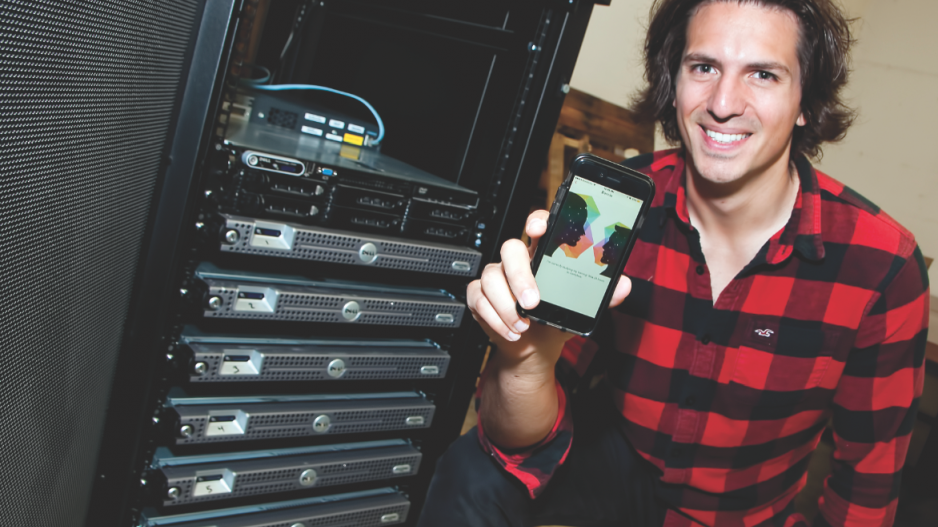If machine learning – or artificial intelligence (AI) – is a mysterious ocean floor yet to be fully mapped, developers at Mobify might have been prepping for a deep-sea voyage just a few months ago.
But CEO Igor Faletski first wanted to spend time with the founders of another Vancouver startup already dipping its toes into AI.
Mobify specializes in optimizing retailers’ websites across multiple platforms, such as smartphones and tablets. Pathful, meanwhile, had been pushing forward with AI-powered marketing technology.
“We saw the technology they built for content marketing is really similar to what we were going to build ourselves,” Faletski recalled.
“We just had a chat and decided to join forces instead of going at it separately.”
Mobify acquired Pathful in April in a bid to use machine learning to study and adapt to users’ behaviour. Instead of canned responses, Mobify wants AI-powered platforms to send tailored messages to customers on behalf of brands.
Facebook (Nasdaq:FB) announced last month it’s pursuing the same strategy with AI-powered chatbots that allow users to communicate with companies directly through the social media giant’s Messenger app.
Want some pizza? Don’t bother calling Domino’s, visiting its website or even using an ordering app. Artificial intelligence will do all the heavy lifting if you just ask it.
“There’s the potential that we’re going to put less educated people out of work. And that’s a very, very legitimate fear,” said Justin Long, founder of the Vancouver-based online dating app known as Bernie.
Long’s app uses AI to study users’ writing habits and online behaviour to judge attractiveness. Bernie will then strike up a conversation by mimicking a user’s writing style.
“It’s quite different from some corporation [that uses] artificial intelligence to automate someone’s job,” Long said.
But he admitted that in the long term, the goal is to expand Bernie’s uses beyond online dating. The AI-powered app could potentially be used as a sort of personal assistant that studies your habits to book taxis or schedule appointments on your behalf.
And if you lose your job, Long said, Bernie could even hunt for leads and send applications to potential employers.
“It’s also an economic adjustment,” he said. “It’s been happening over time for years and years and years where slowly but surely any sort of corporation or organization has found a way to automate something, they’ve found a way to streamline a process. This is natural business behaviour.
“And, of course, it’s not pretty.”
A 2015 Brookings Institution report estimated there were 1.2 million robots in use throughout the world in 2013. That number is expected to increase 58% to 1.9 million by next year, with most of the robots operating in Japan (307,000) and North America (237,000).
In its The Future of Jobs report released in January, the World Economic Forum predicted advancements in job automation – robots, autonomous vehicles, artificial intelligence – would help cut as many as 7.1 million jobs across 15 leading economies between 2015 and 2020.
Most at risk are manufacturing, office and administrative jobs, according to the report.
AI commentator Mack Flavelle said he always resists retail workers’ efforts to make him check out through automated tills.
“I’m like, ‘You’re digging the grave of your own careers,’” the founder of Vancouver-based Leviathan.ai told Business in Vancouver.
“‘I’m going to wait. I’m going to waste my time so your company understands that I want you to be employed doing this.’ But that is shouting into the darkness.”
Flavelle said three factors are pushing the current wave of interest in AI: algorithms, data and processing power.
The algorithm remains largely unchanged from what it was decades ago, but he said access to previously unavailable amounts of data and processing power is what’s fuelling the current spike in job automation.
Certain complex calculations could take years to compute, even using a supercomputer.
But Burnaby’s D-Wave is developing quantum computer systems that reduce that lag to seconds.
Google (Nasdaq:GOOG) and NASA have both bought D-Wave computers to pursue AI since its latest system became available in August 2015.
“Done right, this leads to the Star Trek promise land,” Flavelle said, “where we’re all artisans, we’re all craftspeople, we all pursue that which we are good at.”
@reporton




